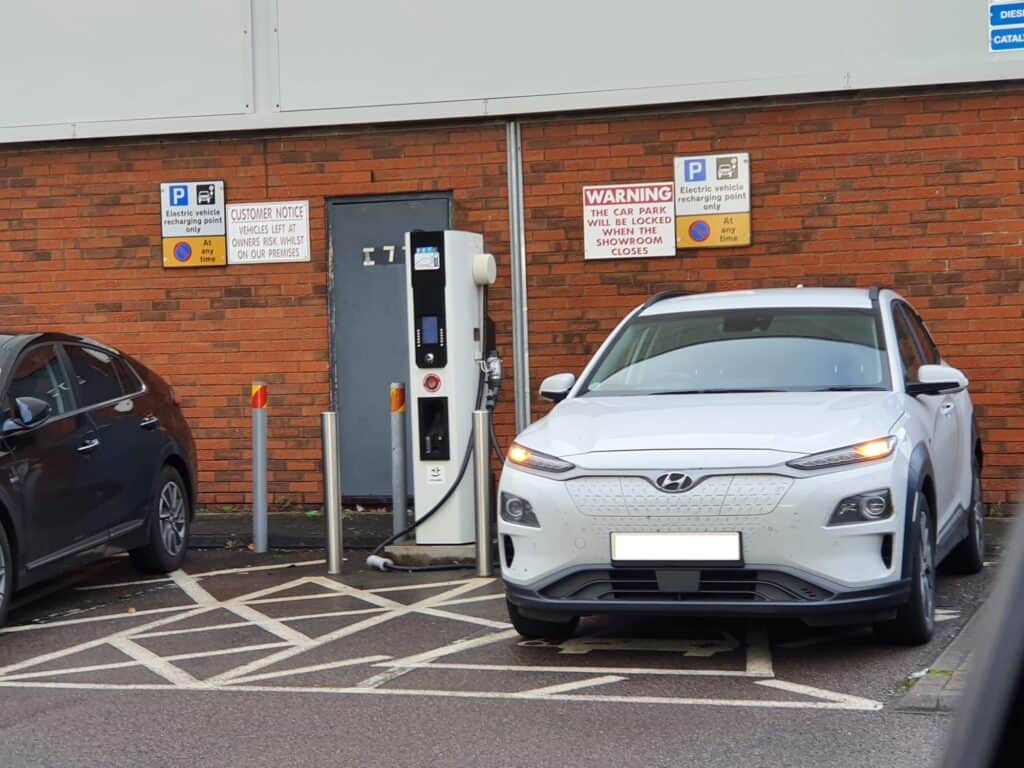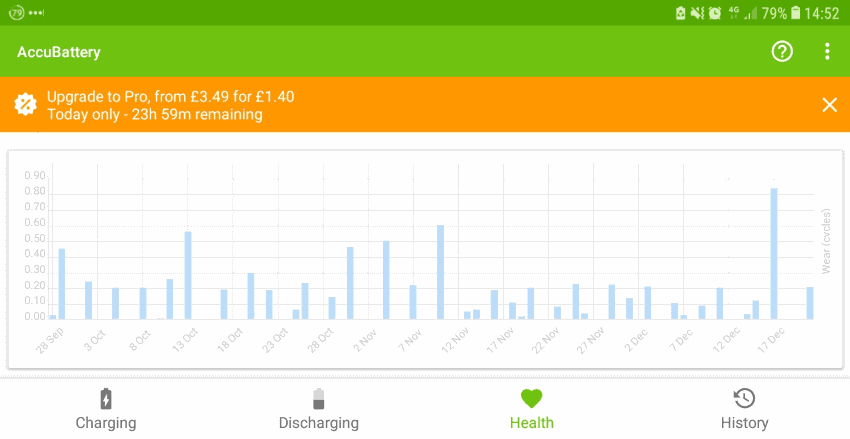Electric cars are forcing us to rethink our driving habits. For decades, we have always planned our driving around intermittent visits to gas stations to ensure that our tanks remain full and we can keep going on our way. While the sizes of gas tanks vary, the average sedan car in 2020 gets about 400 miles of range on a single tank of gas. Electric vehicles, on the other hand, can only offer us an absolute best range of about 316 miles on a single charge (Tesla Model Y). So should you charge up every night?
In general, yes you should charge your electric car nightly if you’re doing a lot of driving: it won’t impact the car battery in the way that people fear. But nightly charging isn’t suitable for everyone.
Making the Switch
Despite all of this, many are still preparing to make the switch from gasoline to electric as an overall long-term commitment to EVs becomes common place around the world. As we do, the question of charging replaces the question of gas stations, and new concerns start to take root in our minds.
Top of many people’s list is the question of charging frequency. With our electric cars, should we follow the same charging habits as we do our smartphones? Is it problematic to charge your car to max range every night? In this article I wanted to explore these questions and others.
Why Do Some Feel the Need for Daily EV Charging?

Many of our everyday electronics do not require daily charging, especially when we’re not constantly using them. The truth is that there’s nothing so different about the electric car, and yet it is still commonplace to see people plugging the car in to charge up even after the vehicle was only used for a handful of small trips perhaps totaling 30 miles in total.
The first reason for this is likely a phenomenon known as “range anxiety.” While even your gas-powered car has a specific range its capable of when driving, we seem to be more aware of our electric car’s range. EV drivers want to naturally maintain their cars at max range just in case they need to undertake a longer trip one day. This means charging back to full range every night when parking up.
A further reason is that at the current level of technology, electric cars do indeed have a shorter range than our gasoline cars, and the likelihood of being stranded with no ability to refuel are greater than that of combustion-engine cars. After all, you can’t load electricity into a handy gas can and bring it back to your car on foot.
Is There a Downside to Charging Every Night?

Based on the reasons given above, you might agree that it makes sense to keep your electric car fully charged every night. On the other hand, you should be aware of the potential downside of this regular charging cycle, especially if you’re trying to maintain the battery at 100 percent. Trying to keep the car charged to 100 percent every day may well create wear on the battery, as will repeatedly letting it discharge down to zero and then charging in full.
Your EV battery is amazingly robust, and is built to maintain its charge through thousands upon thousands of charging cycles. Consumer group Green Energy Consumers noted in their blog that data garnered from 6,000 vehicles shows that the average EV battery only loses about 2.3% of range every year from normal wear and tear. Assuming your EV has a range of roughly 250 miles, that’s only 4 miles each year. It does vary from car to car, but that’s an industry average.
Given that the average driver in the United States (according to 2015 data) drives around 29.2 miles each day, even the lower-end of the EV range spectrum can handle a few days without charging at all. It’s therefore safe for most drivers to maintain their battery around 70-80% charge, and you can do so by setting your max charging level on your car and charger equipment. This brings us neatly to the next question.
Are There Benefits to Daily EV Charging?
The first and most obvious benefit is to retain enough charge for a daily range that covers your needs as they arise. The additional benefit with electric cars is that you have strong control over how much charge it receives each day, which means you can enjoy the benefit of an optimally charged car every day without the wear and tear that can occur from overcharging.
An additional benefit to charging at home every day is avoiding the need to use fast-charge public stations. Fast DC charging is an extraordinary solution to the problem of charging time. The fastest current units can offer an incredible 350kW charging output, which can deliver 100 miles of range in under 10 minutes. Unfortunately, almost no car on the market today is built to take that kind of input, but some models like the 2022 Hummer EV will be able to handle it.
Let’s say your car can handle up to 50kW, which is still much more than the average home charging setup. To either meet or exceed that on a daily basis would certainly bring greater wear to the battery. Therefore, being able to stick with slower trickle charging at home allows you to retain range while the battery maintains its power and output capability over time.
Finally, there are financial benefits to daily charging. Average data shows that the cost per mile for electric charging is only $0.04, whereas the average sedan running on gasoline costs about $0.46-0.60 per mile. Your daily charge, though intuitively being very costly to use all that electricity each day, is actually ensuring you spend less per year on your car.
The Final Recommendation on Daily EV Charging- Yay or Nay?

The short answer “Yay.” Provided you are not trying to charge your EV battery up to 100 percent every single night, there is no major drawback to daily charging. In fact, quite the opposite is true. Keeping the battery from discharging all the way down to zero is beneficial, as it keeps the battery at healthy levels continuously and reduces general wear and tear.
When setting up your home charging solution, you should set the maximum charging range to around 80 percent. If you drive less, you can also set the maximum to somewhat less, somewhere between 65 and 80 percent. This allows for optimal range for your daily driving without putting undue strain on the battery itself. Before making the switch to an electric car, make sure you understand the following things:
1. Your daily driving range needs – lowest and highest
Reflect for a moment on your daily driving needs to come up with a minimum and likely maximum that you would need on any given day. Don’t forget to factor in weekends, day trips and other potential future demands. Generate a lowest and highest number and work within that framework.
2. Your home charging setup
Will you be able to make use of level 2 charging solutions? Or only level 1? If the former, then you will be able to restore range in a faster time still without doing harm to your battery. If only level 1, then you will have to factor in slower overnight charging times. The main benefit of using level 1 “trickle charge” however is that the weaker output is gentler on the battery.
3. Setting your maximum charge rate
You need to be able to ensure that your charging setup will charge the battery only to the preset level, as we describe above between 65 and 80 percent depending on your daily needs. If you don’t preset this, then the charge will continue up to 100 percent, and that may add extra strain to the battery, especially if you’re using a more powerful level 2 or rapid charging solution.
Overall, daily charging is something you can do safely if you need to, but you needn’t charge everyday if your daily mileage is low and your car’s overall range higher. In this way, you can conserve energy and still run the car without depleting and straining the battery by charging up from zero.
2 comments
All sounds very good, but if everyone changed to electric, the government cant afford it. So new laws will be made and the rate per KWh will rocket up to get back lost fuel tax and road tax. You will have to have a special meter fitted that will send info back to the Gov that you have plugged in your car and charging it. They can set the rate per Kwh you will have to pay. If you think this is nonsense, just think how much the Gov get from fuel tax etc its millions and millions. For diesel cars you cant use farmers diesel or cooking oil as they loose revenue, this is just the same.
Then think how much it will cost when I have to replace my batterie pack, it will be cheaper to buy a new car, you try getting a new battery for a cordless drill. Will the old set go into landfill, what about the pollution then. it may look cheap now but wait a few years and the cost will go up.
Most ev batteries will last the life or the car if you follow the 80/20 rule. Even if it needs replacement which by industry standards is 80% original capacity, it is not dead and can continue on in a solar storage capacity or other use. As for the taxes they will have to be made up somehow. Georgia charges an alternative fuel tax when i renew my tags. But its still less than what i spent in fuel taxes in my truck which i still have.